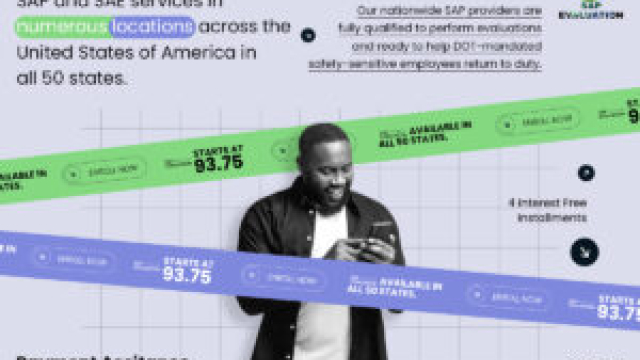The internet and digital innovations have revolutionised the way we live, work, and communicate. In this fast-paced digital age, staying on top of the latest technical skills is essential to remain competitive in the job market and to keep up with the dynamic nature of technology.
Whether you’re a seasoned professional looking to upskill or a newbie trying to carve a career path, the right technical skills can be your ticket to a successful future. But with the tech landscape constantly shifting, which skills should you focus on developing? Here’s a detailed breakdown of the top technical skills you should consider mastering right now.
-
Data Analysis and Interpretation
The era of big data is here, and the ability to analyse and interpret data is a crucial skill across industries. Professionals who can mine insights from complex datasets are in high demand. Familiarity with statistical analysis tools like Python, R, and SQL can give you a significant edge in roles ranging from marketing and sales analytics to finance and healthcare data management.
Understanding data visualisation techniques and tools such as Tableau and Power BI is equally important. Visual representation of data helps stakeholders make informed decisions and understand complex insights more easily. Diving deep into understanding machine learning and AI models would be a forward-thinking extension to this skill set, as these technologies are increasingly integrated into data-centric roles.
-
Full-Stack Development
Full-stack developers are versatile and highly sought-after professionals who have both the front-end and back-end development skills necessary to design complete web applications. Mastering a combination of programming languages, frameworks, and libraries such as HTML, CSS, JavaScript, React, Angular, Node.js, and Python can help you become a proficient full-stack developer.
In addition to technical skills, it’s crucial to understand the principles of user experience (UX) design. A good full-stack developer not only creates functional applications but also ensures that they are intuitive and user-friendly.
-
Cybersecurity
With an increasing number of cyber threats and data breaches, cybersecurity has become an integral part of any organization’s operations. Proficiency in cybersecurity skills like ethical hacking, network security, risk management, and security software development can lead to highly rewarding career opportunities.
Certifications such as Certified Information Systems Security Professional (CISSP) and Certified Ethical Hacker (CEH) are highly regarded within the industry and can help validate your skills.

-
Cloud Computing
The ability to work with cloud platforms like Amazon Web Services (AWS), Google Cloud Platform (GCP), and Microsoft Azure is becoming increasingly important in the tech industry. Cloud computing skills enable developers and IT professionals to build, deploy, and manage applications with greater flexibility and scalability.
Understanding how to set up and maintain cloud environments, along with the ability to work with serverless architectures, is crucial. Certifications from cloud service providers can provide validation of your expertise and improve your job prospects.
-
Digital Marketing Analytics
In the digital marketing sphere, the ability to gather, analyze, and interpret data to optimize marketing strategies is invaluable. Proficiency in tools like Google Analytics, Adobe Analytics, and CRM software can help digital marketers track campaign performance, understand consumer behaviour, and make data-driven decisions.
Digital marketing professionals with strong analytical skills are well-positioned to influence their company’s marketing efforts and lead digital transformation initiatives.
-
Mobile Development
With the exponential growth in smartphone usage, mobile app development skills are in high demand. Whether you’re interested in iOS app development (using Swift or Objective-C) or Android app development (using Java or Kotlin), focusing on mobile platforms can open up many opportunities.
Understanding the mobile user experience and interface design principles is also essential. Consider taking on small app projects to build your portfolio and showcase your skills to potential employers.
-
UI/UX Design
A good user interface (UI) and user experience (UX) design can make or break a product. UI/UX designers are responsible for creating intuitive and engaging digital experiences. Their work involves user research, prototyping, and designing the visual and interactive aspects of a product.
Mastering design tools like Sketch, Figma, and Adobe XD, and staying current with design trends and best practices is essential for a successful career in UI/UX design. Collaboration with developers is also a critical aspect, as good UI/UX design must be feasible to implement and align with technical requirements.
-
Robotics Process Automation (RPA)
RPA is a rapidly growing field that focuses on automating repetitive tasks using software robots or ‘bots’. Knowledge of RPA platforms like UiPath, Blue Prism, and Automation Anywhere can be highly beneficial, especially in administrative or operational roles.
Understanding business processes and being able to identify opportunities for automation is key to implementing RPA solutions effectively. Process analysis, design, and control using RPA tools can lead to significant improvements in efficiency and productivity.
-
Search Engine Optimization (SEO)
SEO is a critical component of digital marketing that focuses on optimising website content to improve its visibility in search engine results. Keeping up with search engine algorithms, keyword research, and on-page and off-page optimisation techniques is crucial for SEO professionals.
Practical experience in managing SEO for multiple web properties and staying informed about the latest SEO trends can help you become an SEO expert.
-
Phlebotomy
Phlebotomy is a technical skill crucial in the healthcare sector, involving the practice of drawing blood from patients for medical testing, transfusions, research, or donation. Possessing competency in phlebotomy requires not only a steady hand and precision but also a thorough understanding of human anatomy, particularly the vascular system. Professionals in this field must be knowledgeable about hygiene and safety standards to prevent contamination and the spread of infections. Additionally, good interpersonal skills are essential for phlebotomists to effectively communicate with patients, many of whom may feel anxious or uncomfortable about the process. Advanced phlebotomy training in Bristol, which includes understanding the proper collection, handling, and processing of blood samples, is fundamental for those pursuing a career in this vital healthcare service.

Conclusion
In conclusion, as you consider which technical skills to prioritise, it’s important to reflect on your own career goals and the demands of your target industry. Continuous learning and adaptability will be essential as technology continues to advance. By focusing on the skills mentioned above, you’ll not only stay ahead of the curve but also position yourself for success in the years to come.



